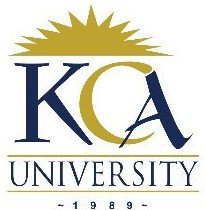
UNIVERSITY EXAMINATIONS: 2018/2019
EXAMINATION FOR THE DEGREE OF BACHELOR OF BUSINESS
INFORMATION TECHNOLOGY
BBIT 207: SYSTEMS DEVELOPMENT METHODOLOGY
FULL TIME/PART TIME/DISTANCE LEARNING
DATE: AUGUST, 2019 TIME: 2 HOURS
INSTRUCTIONS: Answer Question One & ANY OTHER TWO questions.
QUESTION ONE (Compulsory)
a) Discuss the key drivers of knowledge management (6 Marks)
b) Describe the approaches to addressing competitive effectiveness using IS/IT (4 Marks)
c) Describe the potential benefits and the potential blocks to problem cognition when using
techniques in system development (4 Marks)
d) Describe THREE barriers to a new business entering an established market according to
Michael Porter. (6 Marks)
e) Explain what is meant by “iterative prototyping” in the context of systems analysis and
design (2 Marks)
f) Define the term information systems development (2 Marks)
g) The Human Resources and Finance departments of an organization both use the payroll
system. Employees can access the system to look at their pay details and to change their
home address. In this context, explain the importance of the qualities of: (6 Marks)
i) accessibility
ii) privacy
iii) security
QUESTION TWO
A company has over the years used software development methods that rely on documented
specifications and designs. Agile methods are being considered seriously in the pursuit of growth
and internationalisation of the business.
a) Explains the agile principles for rapid software development and justify its appropriateness as
a method for adoption. (12 Marks)
b) Discuss the view that modern life cycle models with their emphasis on prototyping, create
systems that are often fragmented and difficult to integrate; of unsatisfactory reliability,
performance, and functionality; and of limited longevity. (8 Marks)
QUESTION THREE
a) Describe a methodology which can be considered to reflect the “science” paradigm and a
methodology which can be considered to reflect the “systems” paradigm. Refer to the main
objectives, phases/activities, and deliverables of the methodology in your description.
Justify your classification of the methodologies. (10 Marks)
b) b) A systematic approach to practice, should be used by the ISD professional when
developing information systems.
c) i) List and explain THREE overall objectives that should form the framework for
systematic practice in the development of an information system. (6 Marks)
d) ii) Briefly explain TWO areas where lack of focus by the ISD professional might have
undesirable effects on the development of an information system. (4 Marks)
QUESTION FOUR
a) Consider the following requirements for a mobile handset device called HandyWeather
that displays the weather forecast for various locations around the world
HandyWeather gives the weather forecast for cities around the world for a period of five
days
HandyWeather uses a satellite system to determine the weather in a chosen city
The time to display the forecast for all five days should take no longer than 1 minute after
a location has been chosen
Users choose cities from a menu of options organised by continents, countries, and states
HandyWeather has a five lines display showing the weather for each different day in a
different line. The weather is displayed in ascending order for the days (i.e. day 1 is on
the top line, day 5 is on the bottom line)
HandyWeather should display accurate weather forecast
The internal battery of HandyWeather can last for 2 hours. After 2 hours, HandyWeather
needs to be recharged
i) Based on the list of requirements above, which ones are considered non-functional
requirements? (7 Marks)
ii) Based on the list of requirements above, which ones are considered functional
requirements? (7 Marks)
b) Poor user interface design is the reason why so many software systems are never
used. State and explain three human factors that you would take into consideration
when designing a user interface. (6 Marks)
QUESTION FIVE
a) Discuss the view that modern life cycle models with their emphasis on prototyping,
create systems that are often fragmented and difficult to integrate; of unsatisfactory
reliability, performance, and functionality; and of limited longevity. (8 Marks)
b) Compare and contrast the following systems development methodologies (provide
relevant examples for each ) (12 Marks)
i. Blended methodologies
ii. Object oriented methodologies
iii. People oriented methodologies
